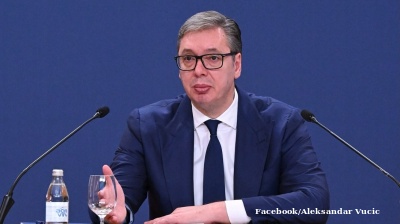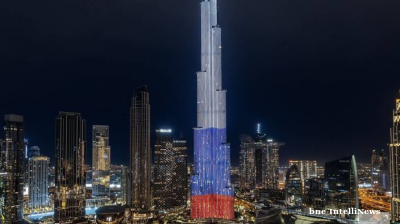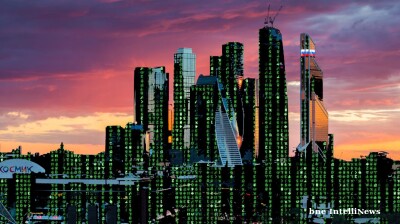Putin’s war has so far achieved the exact opposite to its declared goals; Nato has come even closer to its borders; Ukraine has become more militarised; long-time neutrals Sweden and Finland have applied for Nato membership; and the usually disunited West has shown unprecedented unity in the application of sanctions.
With the continuation of the war, debate moves to the issue of whether Putin should be defeated and tried, or should he be brought to negotiating table with the Ukrainian president, with the rather shocking statement of French President Emmanuel Macron in Strasbourg calling for calling “Russia not to be humiliated”.
The unprecedented violence, destruction and extermination developing in Ukraine hints of a rather personal nature of the unfolding tragedy in Europe. The increasingly personalistic regime of Russian President Vladimir Putin which emerged from the failure of reforms, weak civil society, institutional legacies of the totalitarian and Soviet regime has led to the domination of the psychological factors in his foreign policy – reducing those factors to the power contest of Putin with the US, (or US President Joe Biden), where Ukraine is rather a tool and a legitimate and vulnerable target.
Putin perceived Ukraine as a legitimate target due to his understanding of nature of international relations as pure realpolitik and division in the spheres of influence by the great powers, and at the same time, as a vulnerable target, due to his anticipation of disunity in the West and its pragmatic, rather than normative, policies, and weak capacity and readiness of Ukrainians to resist.
On all these points he was wrong. Yet the war showed that at least two important actors were not taken seriously enough by the West: the Russian society and the newly independent states.
Failed post-Soviet branding
Macron was quite late with his appeal not to humiliate Russia. In fact, this is the perfect time to humiliate Russia, and moreover, to defeat it. There is no justification for the unprovoked invasion of Ukraine and atrocities against civilians in this war. Russia’s behaviour is a direct consequence of Putin’s sense of impunity, the mixed messages he has been sent, appeasement and unlimited pragmatic co-operation.
Putin’s motivation was to prove that he is also entitled to invade and control the other states, as in his perception, the West, first of all the US, does.
The “spoiler’s” role is not to resolve, but to violate, and thus raise the status and fame of oneself. However, what was left, beyond becoming the centre of attention, is that there is not only a need for the people to be perceived equal to the others, but also to have a distinct – and dignified – positive identity, which makes them what they are within their culture and history.
The domestic debates on identity took place early in Russian society, but often were reduced to rehashing of historical arguments due to the weakness of society, and against the background of the failing reform process, which allowed Putin to hi-jack the debate and fill it with the content of his own power projection.
Yet there was something the West could have done. Instead of increasingly being concerned with supporting Russia’s regime status and trying not to “humiliate” it, it could have more openly recognised the positive potential of the people, or society, to reform, even with the reference to history, or culture.
The distinct identity, or state level “branding,” is taking place in interaction with the other states, who send the messages of the normative framework of status and reputation. Making Russia not “great” but “attractive” is the goal of such branding.
Putin’s attempts to sketch out his brand were about control and power, rather than adding value to international relations. Recall his interpretation of “dukhovnost” (“spirituality”) that was used to underpin ideas of Russian otherness and patriotism, and other similar concepts. These ideas were reinforced by the fact that the brand was understood by the West as purely a technocratic exercise – co-operation in peacekeeping, security or pragmatic economic co-operation.
Mixed messages from outside – speeches about human rights, but impunity in violations like in Chechnya, or participation in oil and gas deals by former, and still influential, politicians, the rewards of a “co-chairmen seat,” or peacekeeping forces in spite of Russia’s rather destructive role in secessionist conflicts – allowed an increasingly authoritarian Putin to utilise the West and its values as a threat domestically, while at the same time use its institutions and representatives as enablers.
Society was thus increasingly left behind in official relations and this problem was not addressed domestically nor was not recognized internationally.
Hence the capacity of Putin to fill the void by “greatness”, which is measured by military victory and the physical size of the country in a hi-jacked “branding” process. He did not fully overlook the soft power issue in branding – in fact he stressed on a few occasions that Russia is now representing “true” European values, what he called “reasonable conservatism”.
Although he refers to the prominent Russian philosophers’ tradition, it reflects the reality – failure of reforms and authoritarian rule – which makes Russia unattractive to the societies around Russia, as it indicates an incapacity to play a traditionally modernising and Europeanising role, at least for some regions of the Former Soviet Union (FSU) and for some periods of history.
Putin’s perception of power, international relations and stance of society in the war.
Once a community cannot find a positive distinct identity it is easier for a leader to move to the role of spoiler, or status void of any normative content, and win the support of the lost and disappointed society. Power is understood in pre-modern/modern way, untouched by globalisation and IT, and in terms of its physical size. Grabbing and collecting land as a way to make the country “great” again is a convenient way for elites who failed, or resist making a qualitative change to the country.
These debates have been taking place in Russia since early 1990s – whether Russia should focus on re-establishment control over its former “periphery” or on reforms and changes within the country’s borders.
Our study on the example of conflicts in the South Caucasus proved that post-Soviet autocrats are not interested in modernisation leading to the “opening of the post-Soviet minds”, as it will deprive them of a powerful tool of control and distraction from the domestic issues in substance.
A similar phenomenon is reflected in the “modernisation effect” typical of the rentier state (such as Russia) described by Michael Ross. Military power has a quality of dramatic and spectacular form needed for visualisation of the role of “victor”, which constitutes the core of the “greatness” concept of officially narrated identity.
On the other hand, Putin and his proxies with their old Soviet thinking are led by cynicism in the perception of the nature of international relations as simply realpolitik: the division of the world into spheres of influence by the most powerful states. In his behaviour Putin is guided by the perceived “red lines” established by the foreign policies of the West, first of all by the US, justifying of his invasion of Ukraine, which has even greater legitimacy in his eyes, as it is Russia’s “underbelly”, unlike Iraq or Afghanistan for the US.
It is often said nowadays that the West should have been taking Putin’s words and statements seriously, meaning his views on history of the FSU states and Russia, signalling Russian imperial intentions and claims, which extended far beyond its current borders, most recently when he compared himself to Peter the Great.
However, he has also spoken several times about the unique history and culture of Russia, and earlier when he had just taken office, even about the importance of democracy as a way to realise this unique creative potential of Russians otherwise predicting country’s stagnation. Yet whatever the dynamic of official rhetoric, the societal united alternative of the identity narrative did not ripen or stick.
This is one of the factors explaining the population’s support of the war. Besides the unreliability of polling data in politically restrictive conditions, the identification with the official narrative is an attempt to reduce cognitive dissonance formed by the need to cultivate a positive identity and the negative information resulting from the actions of the state.
Missed opportunities and the way forward: is re-branding possible?
Similar to underestimating the basic needs of societies to form a distinct positive identity and reducing Russia’s foreign policy drivers to that of the ruling elite’s idea of “exceptionalism”, another underestimation has been related to the status of the FSU states – their capacity to resist Russian pressure and form alliances. Ukraine’s heroic resistance to the Russian invasion in February has thrown this aspect into sharp relief.
Enthusiasm of “re-shaping Eurasia” by the bold policies of the South Caucasus leaders of the 1990s was replaced by the bitter awareness in the 2000s that the West will not act as a counterbalance to Russian pressure, mainly coming through support for secessionist conflicts.
The GUAM (Georgia, Ukraine, Azerbaijan and Moldova) – the only alliance that doesn’t include a big power and was formed by the smaller states themselves – is based on a common pro-Western orientation and common security concerns but it did not turn into a viable regional organisation, partly due to fears in the West of upsetting and provoking Russia.
The transformation of GUAM into an effective regional military-defence alliance long before Nato membership became possible could make the resistance of Ukrainian people to Russia’s invasion much stronger and the war shorter.
Having understood that they were left alone vis-à-vis Russia’s threat some states, such as Azerbaijan and most recently Georgia, turned to more balanced policies concerning Russia, while those who maintained a more confrontational stance re Russia, like Ukraine, are now paying a high price.
The reaction to the war in Ukraine by the West disclosed both long-term and short-term challenges to its policies. The war, which is rather a deja-vous in this part of the world with the dramatic experience of violence and wars in the 20th century, demonstrated a failure of deterrence of a potentially dangerous leader, in spite of all the signals coming from the smaller states since the end of the Cold War.
It has also revealed the destructive power of the regime which fills the void of the failure of society to find its identity and “the brand”, reinforced by the underestimation of its role by the international community, besides the sense of impunity and appeasement of the official policies.
The European Parliament only recently directly appealed to Russian society after decades of identification of the country with the regime. Too little, too late, as was Macron’s rather irrelevant appeal not to humiliate Russia.
One of the ways to move forward is to credit people with the positive potential to reform, helping them to re-discover a civilised and distinct identity, based on humanism and universal values, rooted in their history and culture, as in every others’.
The war in Ukraine is an expression of Russia’s weakness – its incapacity, based on its lack of clear identity, to form a unique contribution to world affairs which would be attractive to the other states and their societies.
One of the most powerful driving forces of South Caucasus states' transformation was the memory (or distinct positive identity) of the pre-Soviet occupation, based on just two years of democratic experience of modern nation-state. Azerbaijan’s unique contribution to the world affairs in the early twentieth century was building the first democratic republic in the Muslim East and being a source of liberal ideas far beyond its borders. This liberalising influence could be one of the ways to assert one’s distinct self instead of imposition of control either via soft or hard power, as is done by Russia’s leader, who found himself in a dead end of failed reforms, the monopoly on power and national identity.
There is nothing unique in searches for identity or branding a nation: the UK has been going through the same process in the pre-Brexit period, or today Germany is seriously re-considering its the traditional Ostpolitik. But in a de-colonising country, with non-democratic and weak state institutions, the process might be painful and destructive.
To build an identity and brand at least two conditions are needed: freedoms and interaction with external actors for recognition. The way out of the vicious circle that Russia finds itself in is to win the confidence of having the potential of a positive distinct identity and added value.
When the country was weak, this potential could have been found in one’s own history and culture to support costly moral wartime choices. The participants of our survey stressed the possible role of modernisation, which Russia could have played, when conducting reforms, as in some periods of its history.
The range of possible traits can vary from the cultural modernisation of early twentieth century, progressive political reforms in the nineteenth century, scholarship, its influence on world science, the roots of freedoms like in Novgorod republic (although contested between the two nations). The latter indeed became point of historical reference for the anti-war protesters in Russia since the end of February, who chose the tricolour flag without red colour as a symbol of their movement. So even under current oppressive conditions society shows its attempts to re-brand the nation and take back the hi-jacked control over identity formation from the autocrat.
The objective of branding Russia, finding an identity and its place in the world is still ahead, and is a possible, as the societal protests show. But it remains a challenging task, as after the war in Ukraine is over, Russia will have to go through a re-birth of the state and nation, through transitional justice, holding criminals responsible and atonement similar to that in the German state and society post-1940s.
Dr Leila Alieva is a researcher of Oxford School for Global and Area Studies (OSGA) at Oxford University and the Richard von Weizsäcker Fellow at Robert Bosch Institute in Berlin. She specialises in international relations and Russia-West relations
Opinion

Armenia’s painful reorientation toward the West
Yerevan’s drive to break free from its dependency on Moscow is generating profound internal political turbulence and exposing it to new external risks, says a report by the Central Asia‑Caucasus Institute & Silk Road Studies Program.

COMMENT: Europe’s “fake it till you make it” war approach cannot hold off Russia’s trillion dollar war machine
In their speeches on the war in Ukraine, European leaders appear like a video clip looped on repeat. Standing before the cameras they declare new packages of support for Kyiv and threaten new measures to pressure Russia as if it was still 2022.

A year after the Novi Sad disaster, Belgrade faces one crisis after another
Serbia’s government is grappling with a convergence of crises which threaten to erode President Aleksandar Vucic’s once-dominant position.

Don’t be fooled, Northern Cyprus’ new president is no opponent of Erdogan, says academic
Turkey’s powers-that-be said to have anticipated that Tufan Erhurman will pose no major threat.



